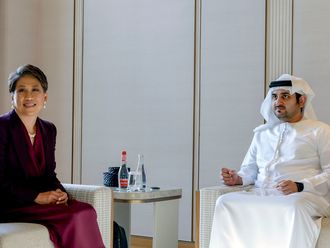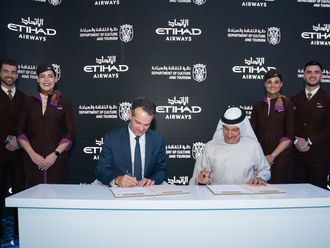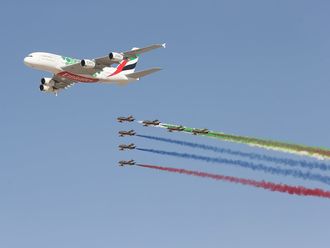Dubai: The UAE’s Purchasing Manager’s Index (PMI) data for April showed that the rate of expansion in the non-oil private sector continued at the same pace as in the previous month.
Output increased more quickly, underpinned by ongoing growth of new work inflows, indicating overall improvement in business conditions. However the data showed that the rate of rise in new orders was the least marked since August 2013.
The UAE’s PMI is an indicator of non-oil economy based on data compiled by HSBC and Markit Economics from purchasing executives in approximately 400 private sector companies in the UAE.
May data showed that on the price front, input costs increased modestly. After adjusting for seasonality, the headline PMI posted at 56.4 in May, down from 56.8 in the previous month.
The average PMI reading in the first five months of this year was 57.4, similar to the 57.5 average recorded over the same period last year.
“The UAE’s non-oil private sector continued on its robust growth trend during May, supported by marked expansions in output and new business. With employment also rising solidly,” said Philip Leake, Economist at Markit.
Non-oil private sector output in the UAE continued to rise in May, with the subindex rising to 62.8 as has been the case in every month since February 2010.
New orders growth slowed last month with the index easing to 60.9. While this reflects very strong expansion (the neutral level is 50), it is nevertheless the lowest new orders index level since August 2013. Total new orders growth continued to be supported by robust export demand; export orders grew slightly faster in May, with the index rising to 60.3 from 60 in April.
“While the ‘demand’ components of the PMI remain around the 60-level, the overall index is lower due to the subdued price components, and relatively modest growth in employment and inventories,” said Khatija Haque, Head of MENA Research at Emirates NBD.
Growth of total new work was supported by a robust expansion in new export business during May. There were reports that commercial initiatives had led to stronger demand across international markets.
Payroll numbers in the UAE’s non-oil private sector continued to rise solidly in May, with the rate of job creation picking up to a three-month high. Those companies that hired additional staff commented on the start-up of new projects and the opening of new branches.
Buying activity also increased during May, reflective of ongoing expansions in output and new orders. The rate of growth was little-changed since April and faster than the long-run series average.
Input prices increased in May, but at a slower pace than in April, while output prices declined for the fourth consecutive month, but modestly. The rate of inflation was muted in the context of historical data. Both purchase prices and staff costs rose modestly in the latest period.
“On the price front, cost pressures remained relatively subdued, while average tariffs declined for the fourth month running, albeit only marginally,” said Leake.












